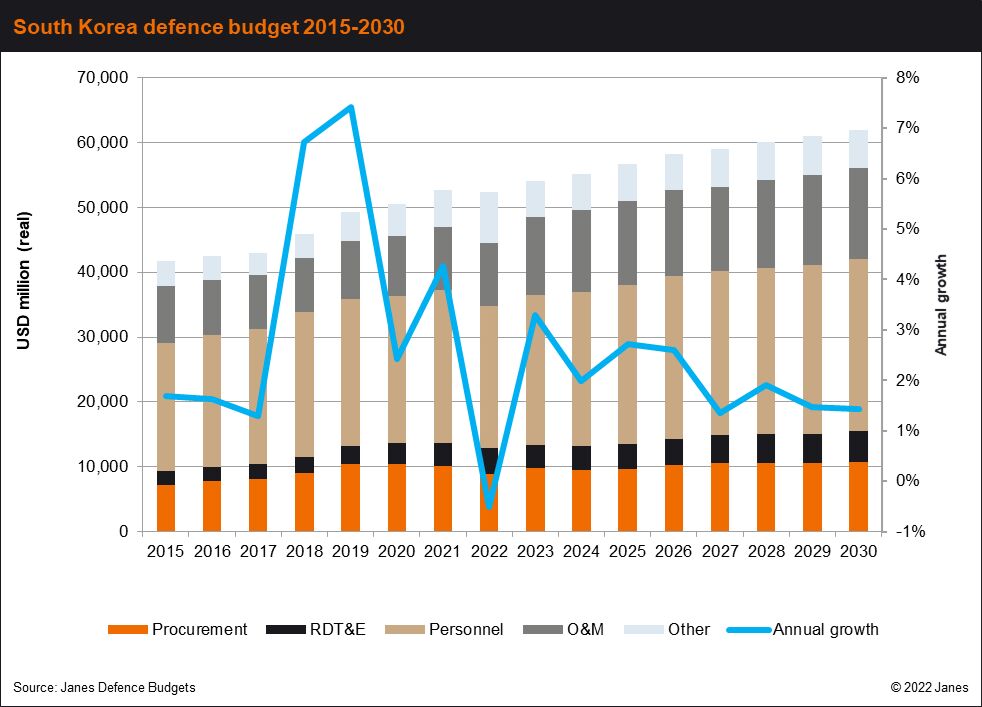
Total military expenditure in South Korea is forecast by Janes Defence Budgets to climb from USD52 billion in 2022 to USD62 billion in 2030. In this timeframe, funding for procurement is forecast to grow from about USD9 billion to USD11 billion. (Janes Defence Budgets)
South Korea's Defense Acquisition Program Administration (DAPA) is preparing to launch a new system to encourage collaboration between domestic small and medium-sized enterprises (SMEs) and foreign suppliers to the Republic of Korea (RoK) Armed Forces.
A DAPA spokesperson told Janes on 22 September at the DX Korea 2022 exhibition in Goyang that the new ‘industrial co-operation quota system' will be launched once an amendment to its framework legislation – the Defence Program Act– is approved by the National Assembly of South Korea.
While a specific timeline for this approval has not been confirmed, DAPA has indicated that this could be soon. “The national assembly is internally reviewing the industrial quota system. When the related law is amended, we can implement this instrument,” the DAPA spokesperson said. The proposal to amend the Defence Program Act was submitted by DAPA in 2021.
The spokesperson explained that the new quota system will support DAPA's existing defence offset policy. “This system is not replacing offsets,” said the spokesperson. “It will be an additional instrument to [encourage collaboration], but the decision to apply the quota system in procurements will be decided on a case-by-case basis and in certain programmes.”
According to DAPA, the industrial co-operation quota system will seek to ensure that “a certain ratio” of components and systems produced by local SMEs is integrated into military equipment procured from foreign suppliers. However, the spokesperson said that the ratios to be applied will also be determined on a case-by-case basis.
Looking to read the full article?
Gain unlimited access to Janes news and more...







